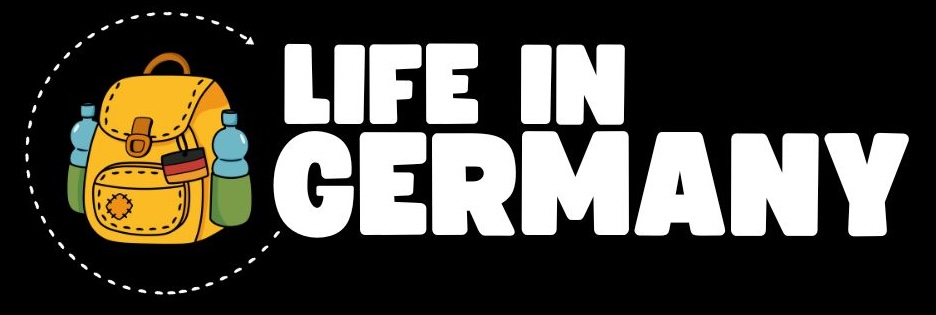If you’re pregnant in Germany or planning to be, you’ve likely heard about the Mutterpass. This little booklet is an essential part of prenatal care in Germany, and it’s something that every expectant mother should understand. In this blog post, we’ll explain what a Mutterpass is, why it’s important, and answer some of the top questions expectant mothers have about it.
If you would like a full guide to having a baby in Germany, feel free to check that guide out too!
What is a Mutterpass?
A Mutterpass is a comprehensive maternity booklet given to every pregnant woman in Germany. Issued by your gynecologist or midwife during your first prenatal visit, this booklet serves as a detailed medical record of your pregnancy. It contains all the important information about your health, your baby’s development, and any tests or screenings performed throughout your pregnancy.
The Mutterpass is unique to Germany and is considered an invaluable tool for healthcare providers. It ensures that any doctor or midwife you see during your pregnancy can easily access your medical history and make informed decisions about your care.
Why is the Mutterpass Important?
The Mutterpass is crucial because it:
- Records Key Medical Information: It keeps track of your medical history, including previous pregnancies, existing conditions, and any complications that may arise during your current pregnancy.
- Monitors Baby’s Development: It includes details about your baby’s growth, ultrasound results, and other developmental markers.
- Facilitates Emergency Care: In case of an emergency, the Mutterpass provides all the necessary medical information at a glance, ensuring prompt and appropriate care.
- Enhances Communication Among Healthcare Providers: Since Germany has a robust system of midwives and gynecologists, the Mutterpass ensures all your healthcare providers are on the same page, regardless of where you receive care.
Your Top Questions About the Mutterpass
1. When do I receive the Mutterpass?
You will receive your Mutterpass at your first prenatal appointment, usually around the 8th to 12th week of pregnancy. The booklet will be issued by your gynecologist or midwife and will be filled out with your initial medical data and pregnancy information.
2. What information is recorded in the Mutterpass?
The Mutterpass contains several sections, each dedicated to different aspects of your pregnancy:
- Personal and Medical History: Includes information about your past pregnancies, pre-existing medical conditions, and any hereditary diseases.
- Blood Tests and Blood Type: Records your blood type, Rh factor, and results from various blood tests, including those for rubella immunity, HIV, hepatitis, and more.
- Ultrasound Findings: Document your baby’s growth measurements, position, and any anomalies detected during routine ultrasounds.
- General Health Checks: Tracks your weight, blood pressure, and urine tests throughout your pregnancy.
- Details of the Pregnancy: Notes on any complications, such as gestational diabetes or high blood pressure, and the treatments or interventions provided.
3. Do I need to carry the Mutterpass with me at all times?
Yes, it is recommended to keep your Mutterpass with you at all times. This is especially important as your pregnancy progresses because it provides essential information in case of an emergency. If you travel or move between cities, having your Mutterpass ensures that any healthcare provider can quickly understand your pregnancy history and needs.
4. What should I do if I lose my Mutterpass?
If you lose your Mutterpass, contact your gynecologist or midwife immediately. They will be able to issue a new one, though some historical information may be lost. It’s a good idea to make a photocopy or take pictures of the pages regularly, just in case.
5. Can I write in the Mutterpass myself?
The Mutterpass is intended to be filled out by healthcare professionals. However, some sections, such as your contact information, may be updated by you if necessary. Avoid writing in sections reserved for medical data to ensure that all records remain clear and accurate.
6. Is the Mutterpass only available in German?
Yes, the Mutterpass is only available in German. If you’re not fluent, it’s helpful to bring a German-speaking friend or family member to your appointments to help translate the information. Some expats also find it useful to ask their healthcare provider to explain the contents of the Mutterpass in English during visits. Many healthcare providers actually speak English too, so don’t worry!
7. What happens to the Mutterpass after I give birth?
After you give birth, the Mutterpass serves as a valuable keepsake of your pregnancy journey. While it’s not required for future medical care, it’s a good idea to keep it in a safe place, especially if you plan to have more children in the future. I actually kept mine because there was enough room in mine to document 2 births. Both my pregnancy journeys are now documented in one book.
8. Is the Mutterpass accepted in other countries?
The Mutterpass is specific to Germany and is not officially recognized in other countries. However, if you are traveling or moving abroad during your pregnancy, it can still be useful to show to healthcare providers in other countries, as it contains comprehensive details of your pregnancy and medical history.
The Mutterpass is more than just a booklet—it’s a vital tool for ensuring the health and safety of both you and your baby throughout your pregnancy in Germany. By keeping it up-to-date and carrying it with you, you can rest assured that you’re providing the best possible care for yourself and your little one. If you have any more questions or concerns about the Mutterpass, don’t hesitate to ask your healthcare provider for guidance. If you have more questions about the preparation stages of your pregnancy, I’d highly recommend reaching out to our expert, Elodie, Founder of Baby in Berlin who can help you get started, help find you a midwife, doctor, etc.

